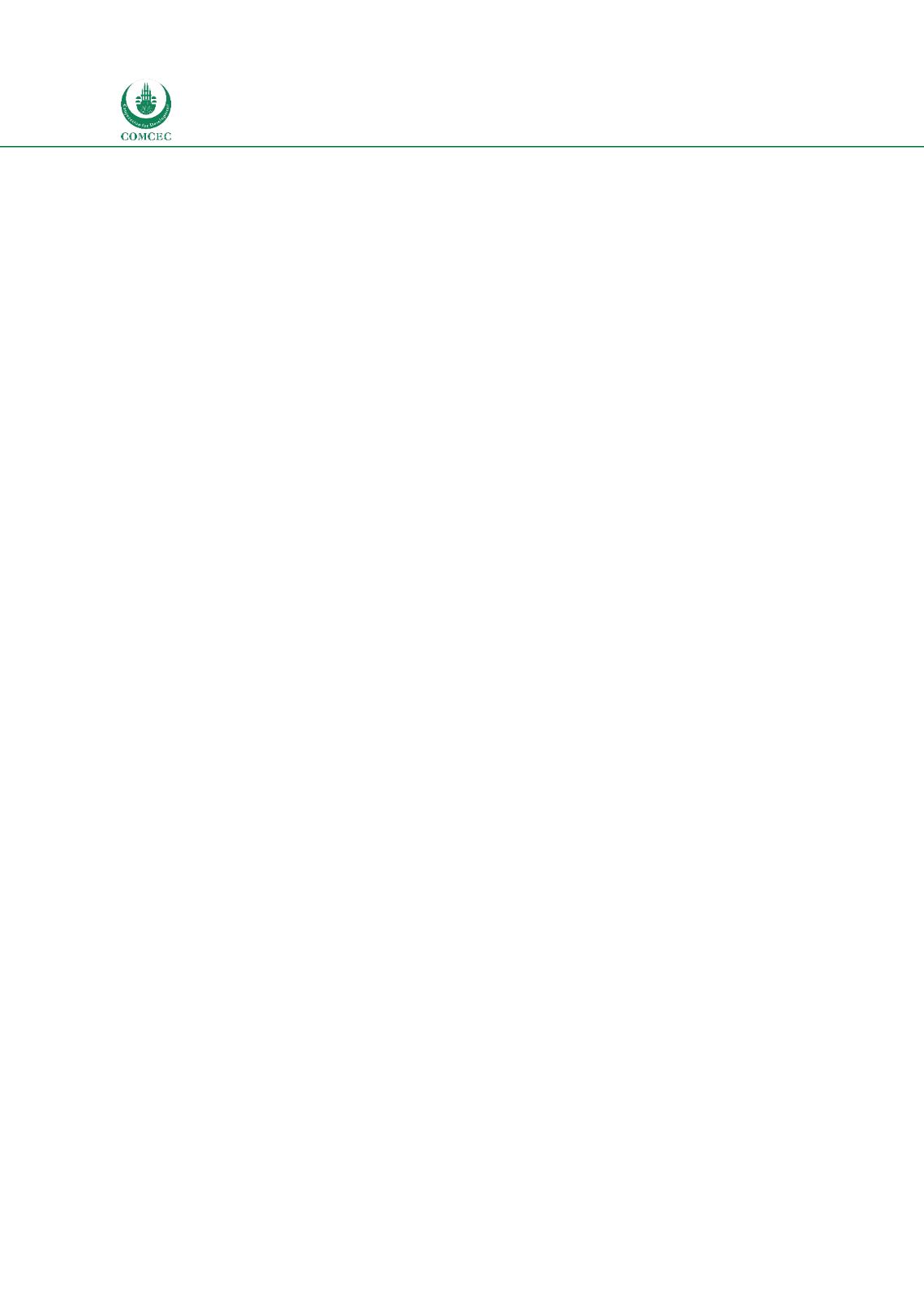

National and Global Islamic Financial Architecture:
Problems and Possible Solutions for the OIC Member Countries
228
Consumer protection has received renewed interest after the GFC and also needs to the
strengthened for Islamic finance. There is a need to develop consumer protection guidelines
that cater to the specific features of Islamic financial sector and also come up with a framework
for financial literacy programs. SBIF can coordinate with with IFSB for developing guidelines
on consumer protection and with CIBAFI to develop programs for financial literacy. To protect
the Islamic banking depositors during crises would also require appropriate models for
deposit insurance. SBIF and IFSB can collaborate with IADI to initiate this project.
Various multilateral organizations such as IRTI, IDB and World Bank GIFDC are involved in
research that can promote the development of the Islamic financial sector. These organizations
can further contribute to the development of the industry by sponsoring applied and policy
oriented research. In particular, there is scarcity of resources in the Francophone African
countries and more should be made available to countries both in terms of education and
training. With the growth of the industry, the need for credible certification programs for
Islamic finance will grow. International industry based organizations such as AAOIFI and
CIBAFI can take initiatives to develop internationally recognizable certification programs to
increase the knowledge and skills of professionals working in the industry. There is also need
to invest in research and provide training in different areas related to Islamic architectural
institutions. While IFSB organizes workshops to familiarize others with their published
standards and guidelines, multilateral organizations such as SBIF, IDB and WB can also cover
other infrastructural institutions though their technical assistance programs.
8.3. Islamic Finance in Global Financial Centers
The experience of the development of Islamic finance in global financial centers is varied
across jurisdictions and sectors. The key determinants of the status of Islamic financial sectors
in these centers are the levels of demand on the one hand and the strategic vision to support
the industry on the other hand. On the demand side, two types of markets can be identified:
domestic and international. Industries such as Islamic retail banking and takaful sectors
catering to the needs of domestic clients would, therefore, be limited to countries that have
significant Muslim minorities. These sectors would, however, develop in these countries if
there is institutional support from governments. The United Kingdom and Singapore fall in this
category where both, Islamic retail banking and takaful, have been initiated. While Germany
has a relatively large Muslim minority group, no takaful company exists and Islamic retail
banking was initiated there recently. This is partly because the government and regulators
have not shown strategic interest in the development of Islamic finance.
The international market segment would entail retakaful, wholesale banking and provision of
capital market products such as funds and sukuk. While reinsurance companies based in
Singapore are offering retakaful services, German companies are offering these services from
their overseas offices based in Muslim countries. The United Kingdom and Singapore have also
taken initiatives to encourage the development of wholesale banking markets to cater to the
needs of Muslims for wealth management. With the exception of Germany, the key focus of
remaining global financial centers that were studied has been the capital markets segment.
Governments in these countries have promoted the sector, sometimes by accommodating laws
and regulations to attract globally mobile Islamic financial businesses.
















